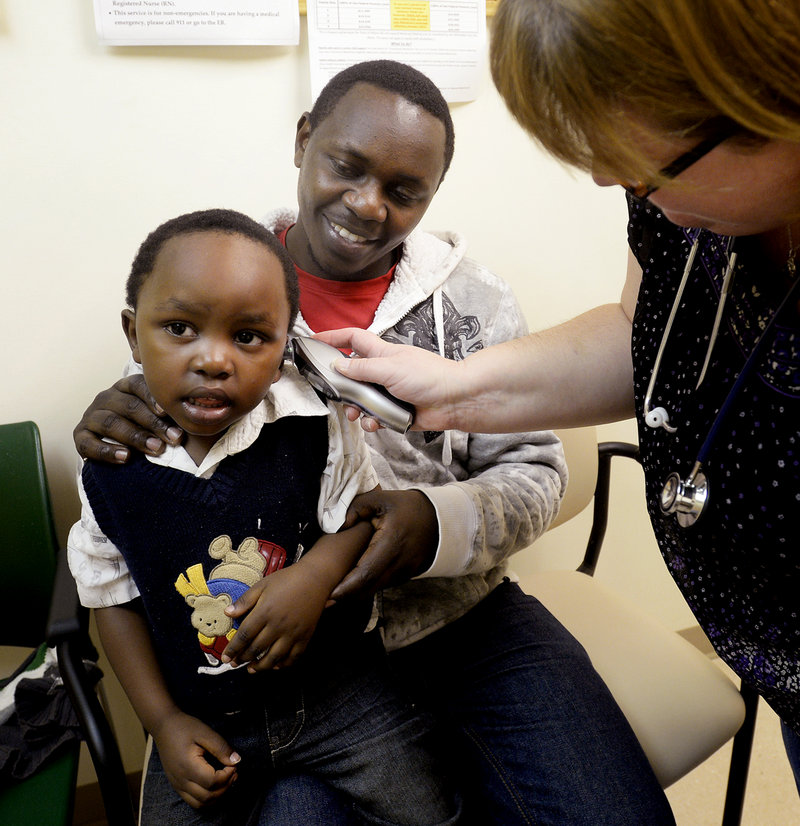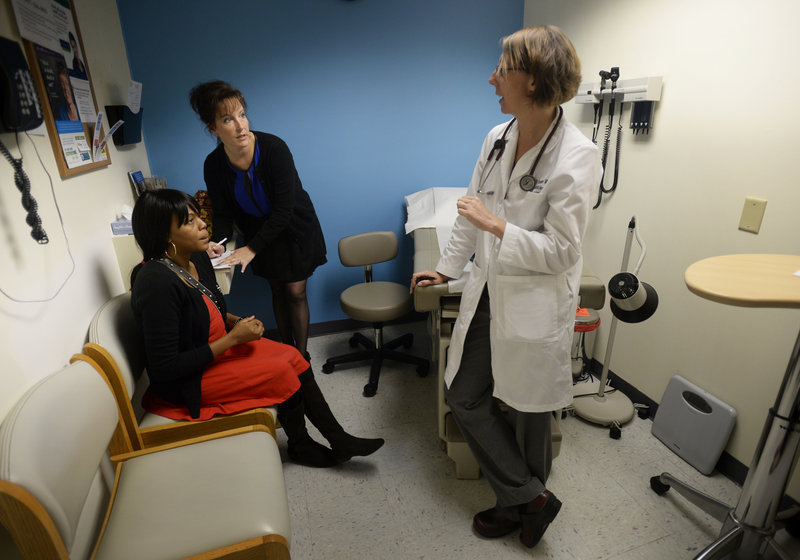PORTLAND – Community health clinics that serve low-income residents and the uninsured will play a greater role under the Affordable Care Act, even though the way they operate will shift because more people will have health insurance as the law takes effect, experts say.
The federal government is spending $11 billion nationwide to expand and improve the clinics, according to the U.S. Department of Health and Human Services.
“The clinics are a key part of the strategy,” said Dora Anne Mills, vice president for clinical affairs at the University of New England and a former Maine health official. “The ACA increases support for the community health centers. With more people insured, there needs to be a larger primary care workforce.”
The clinics — which in Portland include the Portland Community Health Center, Portland Community Free Clinic and Healthcare for the Homeless — can expect an influx of federal funding for a number of purposes, such as building renovations, encouraging more doctors to be primary care physicians, and helping people purchase insurance on the new health insurance exchanges — so-called “marketplaces” — being set up in the various states.
The Portland Community Health Center, for example, received a $74,000 grant earlier this year to help people sign up for benefits in Maine’s new health insurance marketplace, which begins on Oct. 1. Those earning between 100 percent and 400 percent of the federal poverty level, up to about $90,000 for a family of four, will be eligible for subsidies to help pay for individual insurance in the marketplace.
The Maine Bureau of Insurance has predicted that 5 percent to 8 percent of Maine’s population will purchase insurance in the marketplace, often the self-employed or part-time workers who don’t have coverage through an employer.
Statewide, the federal government recently gave $1.4 million to community health centers for similar efforts to help people sign up for benefits.
The “working poor” are used to going to the clinics and will continue to do so even after they have insurance, experts said.
“I don’t see the need for the clinics going away, at least not anytime soon,” said Caroline Teschke, clinical programs director at the Portland Community Free Clinic on India Street.
The clinics typically serve all patients, including the insured, underinsured, uninsured and those on MaineCare.
Libby Cummings, an outreach and enrollment specialist at the Portland Community Health Center on Park Avenue, said clinic employees over the past several weeks have been calling patients or talking to them as they arrive for doctor’s appointments to discuss eligibility to buy insurance in the marketplace. If they are eligible, Cummings and other workers at the clinic help them figure out whether it’s something they want.
“We’re the people who help make the ACA seem less bureaucratic, and cut through the red tape,” Cummings said.
While the clinics provide primary care, any care needed beyond basic services would not be covered unless the patients somehow acquire insurance.
Kira Maas, outreach manager at the Portland Community Health Center, said people know that “change is coming” but often they haven’t looked into buying insurance through the Affordable Care Act because they assume it’s too expensive. Once it’s explained and their out-of-pocket costs are estimated, the response has been positive, Maas said. While costs vary depending on income and the type of plan chosen, a typical premium for an individual would be about $150 per month.
“People have been able to see that the monthly premium has been mostly a good surprise,” Maas said.
Cummings, who has a biology degree from Stanford University and intends to go to medical school in a few years to become a doctor, said she is contemplating a career as a primary care physician because of her experiences at the community health center.
“It’s just something I’m really thinking about more,” Cummings said. “There’s a real need for primary care doctors.”
At the health center Friday, Miraji Imena, 2, waited patiently while nurses checked his height, weight and blood pressure.
His father, Joseph Nsabimana of Portland, immigrated here from the African nation of Burundi about a year ago and is seeking asylum as a refugee. He said he likes the clinic and they receive good services there.
The refugee community is one population that is served at the clinics, and Maas said there are many volunteers on hand to help people access health care.
Joe Lawlor can be contacted at 791-6376 or at:
jlawlor@pressherald.com
Twitter: @joelawlorph
Send questions/comments to the editors.





Success. Please wait for the page to reload. If the page does not reload within 5 seconds, please refresh the page.
Enter your email and password to access comments.
Hi, to comment on stories you must . This profile is in addition to your subscription and website login.
Already have a commenting profile? .
Invalid username/password.
Please check your email to confirm and complete your registration.
Only subscribers are eligible to post comments. Please subscribe or login first for digital access. Here’s why.
Use the form below to reset your password. When you've submitted your account email, we will send an email with a reset code.